How well do we know Shakespeare?
How well do you know Shakespeare? Сценарій костюмованого балу, присвяченого творчості У. Шекспіра.
Сценарій костюмованого балу, присвяченого творчості У. Шекспіра.
Для художнього оформлення залу необхідні портрети У. Шекспіра, краєвиди Стретфорда, літографія «Театр «Глобус» ХVІІ століття», фотографії пам’ятника У. Шекспіру та його героям у Стретфордіб ілюстрації до творів драматурга, а також цитати з них:
“To be or not to be, that is the questions”.
“The beginning of the end”.
“The whirling of time”
“All is well that ends well”.
“Life is not all cakes and ale”.
“Brevity is the soul of wit”.
“Much ado about nothing”.
“All the world’s a stage and all the men and women merely players”.
Для музичного оформлення можна використати такі музичні твори:
- «Вальс Джульєтти» з опери Ш. Гуно «Ромео і Джульєтта».
- Музику із балету С. Прокофьєва «Ромео і Джульєєтта».
- Увертюру – фантазію П.І. Чайковського «Гамлет».
- Сюїту Д. Шостаковича «Гамлет».
- Музику до кінофільму «Ромео і Джульєтта» (режисер – Франко Дзе – Фіреллі).
- Музику композиторів ХVII століття.
(Music of XVII century)
Pupil 1: Dear friends! We are glad to introduce the greatest playwright and poet W. Shakespeare to you. Our party is dedicated to his life and work. You’ll be able to show your knowledge of his plays and sonnets, your dramatizing and artistic abilities, your fantasy in creating your costumes.
Pupil 2: The name of Shakespeare is known all over the world. The last half of the 16th century and the beginning of the 17th centuries are known as the Golden Age of the English literature. It was the time of the English Renaissance, and sometimes it is called “The Age of Shakespeare”.
Pupil 1: the first facts of Shakespeare’s biography are that he was born on April 23, 1564 in Stratford – upon – Avon.
“Shakespeare”: And now it’s my turn to speak. Stratford – on – Avon is a marvelous place: I was born there and I went back there to die. It was well – known for its markets and fairs. The town stands on the Avon, a pretty river with grass and trees on both banks.
Pupil 2: So, your childhood was rather happy, wasn’t it?
“Shakespeare”: Yes, it was. And it was due to my parents. Let me introduce my father.
“John Shakespeare”: My name is John Shakespeare. I am a dealer in corn, meat, wool and leather. I am a man of some importance in Stratford, next to the Mayor. I am married. Meet my wife Mary Arden. Mary is the youngest daughter of a rich farmer. She is a woman of lovely character.
“Mary”: Thank you, for your kind words, but we are here not to speak about ourselves. I am going to talk about William. I am proud to have such a clever son. He was always good at learning. He attended grammar school at Stratford, he learned to read and write there, and it was not an easy task at that time, because reading was taught as learning buy heart. And school teachers kept discipline according to the proverb: “Spare the rod and you spoil the child”. Besides, he had a kind of private lessons at home. An Italian who lived in our house taught him Latin, Italian and poetry of many foreign authors.
Pupil 1: So, you were learning all the time at school and at home. Wasn’t your boyhood dull and boring?
“Shakespeare”: Not at all. My childhood was full of fishing and hunting. Besides, I was still a boy when I began to write plays and poems. I devoted my first verses to my beloved Anne Hathaway. Let me introduce my wife to you.
“Anne”: I can’t say that my marriage was a happy one and how could it be when Willie left me, our two daughters and a son, and went to London?
“Shakespeare”: I had to go there because there was no work for me in Stratford. That’s why I decided to go to London and try myself first as an actor and later as a playwright.
Pupil 2: (to pupils) And you were right because you created a lot of literary works there. By the way, do you know how many sonnets and plays Shakespeare created?
Pupils answer.
Pupil 1: Yes, you are right. W. Shakespeare created 2 poems, 154 sonnets and 37 plays.
“Shakespeare”: I am glad you know a lot of my works. Now I want to suggest you a kind of a competition. I wrote the titles of my works on separate cards. Among them there are comedies, tragedies and historical dramas. Your task is to arrange them on the poster according to their literary genres.
|
Comedies |
Tragedies |
|
“The Comedy Of Errors” |
“Hamlet, Prince of Denmark” |
|
“The Taming Of The Shrew” |
“Romeo and Juliet” |
|
“The Two gentlemen of Verona” |
“Othello” |
|
“All’s Well That Ends Well” |
“King Lear” |
|
“A Midsummer Night’s Dream” |
“Macbeth” |
|
“Much Ado About Nothing” |
“Julius Caesar” |
|
“Twelfth Night” |
“Antony And Cleopatra” |
Histories:
“King Henry IV”
“King Richard III”
“King John”
Утворюються дві команди. Кожна з них отримує комплект карток з назвами п’єс У. Шекспіра та розміщує їх на постері в три колонки згідно з літературним жанром. Виграє та команда, яка швидше розподілить картки. Команда – переможниця нагороджується призом.
“Shakespeare”: I appreciate your knowledge of the titles of my works. But do you know their content? How thoroughly have you read them? Let’s have a quiz. Choose the right answer.
1. What main hero lost his father, who was killed by his uncle? (Hamlet, Othello, King Lear)
2. What was the name of the girl who fell in love with a man in a mask? (Juliet, Ophelia, Cleopatra)
3. What king had three daughters? (King Lear, Claudius, Jaques)
4. Who said “To be or not to be – that is the questions”? (Hamlet, Antony, Yago)
5. Whose last words were: “Thus with a kiss I die”? (Romeo’s, Richard’s, Tybalt’s)
6. Who said “I kissed you before I killed”? ( Othello, King Lear, Julius Caesar)
7. Whom do the words “All the world’s stage, and all the men and women merely players” belong to? (Jaques, Yago, Claudius)
8. I which play did three men wear women’s clothes? (“The Merry Wives of Windsor”, “All’s Well that Ends Well”, “As You Like It”?
9. Whose words are these: “Alas poor Yorick”? (Hamlet’s, Mercucio’s, Othello’s)
10. Who said: “How sharper than a serpent’s tooth it is to have a thankless child”? (King Lear, Richard III, Julius Caesar)
Ведучі допомагають проводити конкурс, вручаючи учням за кожну правильну відповідь листівку. Учень, який отримав найбільшу кількість листівок, є переможцем. «Шекспір» нагороджує переможця призом.
Pupil 2: I suggest one more competition. On the poster you can see the titles of 14 plays by W. Shakespeare. But the titles have been jumbled up.
Can you sort them? 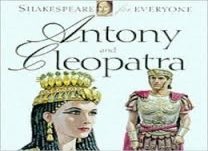
PLAYS:
|
Henry III |
King Beth |
|
The Merry Wives of Venice” |
Romeo and Cleopatra |
|
Julius Andronicus |
The Merchant of Windsor |
|
Antony and Juliet |
Richard IV |
|
Maclear |
Hamlet, Prince of Verona |
|
The Two Gentlemen of Denmark |
A Winter’s Dream |
|
A Midsummer Night’s Tale |
Titus Caesar |
На постері записані переплутані назви творів У. Шекспіра. Наприклад: «Romeo and Cleopatra”. Необхідно відновити правильні назви творів «Romeo and Juliet”. Учні підходять до постера і визначають правильні назви. «Шекспір» нагороджує переможця призом.
“Shakespeare”: I see so many heroes of my plays among you: Juliet, Othello, Hamlet, Romeo, Desdemona, Ofelia. But why do they sit separately? Let’s ask them to pair up. (Персонажі творів знаходять один одного: Ромео – Джульєтту і т.д.)
And can you guess now from what works they are? Let’s invite them to dramatize some dialogues with the help of which you’ll be able to identify the heroes with my literary works.
(Учні драматизують діалоги з творів У. Шекспіра «Ромео і Джульєтта», «Отелло», «Гамлет»).
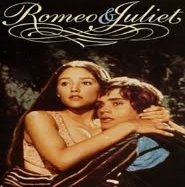
Romeo and Juliet
Romeo: She speaks. O, speak again, bright angel.
Juliet: O, Romeo. Deny thy father and refuse thy name. And I’ll no longer be a Capulet.
Romeo: Shall I hear more or shall I speak at this?
Juliet: What’s Montaque? It is nor hand, nor foot, nor arm, nor face, nor any other part belonging to a man. O, be some other name: What’s on a name? That which we call a rose. Be any other name would smell as sweet.
Romeo: Call me but love, and I’ll be new baptized. Henceforth never will be Romeo. My name is hateful to myself. Because it is an enemy to thee.
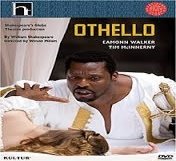
Othello
Desdemona: Who’s there?
Othello: It’s me. Have you prayed tonight, Desdemona?
Desdemona: Ay, my Lord. What’s the matter?
Othello: That handkerchief which I so loved and gave thee, you gave it to Cassio.
Desdemona: No, by my life and soul.
Othello: I would not kill thy soul.
Desdemona: Talk you of killing?
Othello: Ay, I do. O, Lord, have mercy on me. I say amen.
Desdemona: And have you mercy, too: I never did offend you in my life, never loved Cassio. I never gave him token.
Othello: By heaven, I saw my handkerchief in his hand.
Desdemona: I never gave it him. Let me confess the truth.
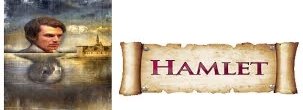
Hamlet
Ofelia: My Lord, I have remembrances of yours. I pray you.
Hamlet: Are you fair?
Ofelia: What means your lordship?
Hamlet: That if you be honest and fair, your honesty should admit no discourse to your beauty.
Ofelia: Could beauty, my lord, have better commerce that with honesty.
Hamlet: Ay, truly, for the power of beauty will sooner transform honesty from what it is to a bawd than the force of honesty can translate beauty into his likeness. I did love you once.
Ofelia: Indeed, my lord, you made me believe so.
“Shakespeare”: I want to thank our actors. I highly appreciate your performance. Now it’s high time to have a fancy dress parade and choose the best costume.
Pupil 1: We know that W. Shakespeare is also a famous poet. He wrote many sonnets which are popular and loved by our pupils. Let’s listen to some of them and define the winner among the reciters.
(Учні декламують сонети. «Шекспір» нагороджує переможця конкурсу декламаторів призом).
Pupil 2: Your sonnets have been translated into many different languages. Among the best translators we can mention S. Marshak, M. Rylsky, B. Pasternak and many others. Our pupils also tried themselves in translating your sonnets and now we invite you to listen to them.
(Учні читають свої переклади сонетів. «Шекспір» визначає переможця).
Pupil 1: The last few years W. Shakespeare spent at Stratford. He died on his 52nd birthday. His tomb is in old Parish Church. Four lines are inscribed on it. Do you remember them?
“Shakespeare”: Good friends, for Jesus sake forbear
To dig the dust inclosed here,
Blessed be he, that spares these stones,
And cursed be he moves my bones.
Pupil 2: That’s why Shakespeare’s body was left at Stratford and was not taken to Westminster Abbey where many famous English writers and poets are buried.
Pupil 1: But life goes on…on April 23, the annual festival in commemoration of W. Shakespeare’s birthday is held at Stratford. All the world remembers Shakespeare. So do we. A lot of our pupils have made illustrations to Shakespeare’s works. You can see them on the walls of our assembly – hall. I declare our picture gallery open.
(Бал закінчується під звуки композиторів ХVII століття). 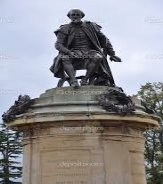


про публікацію авторської розробки
Додати розробку
